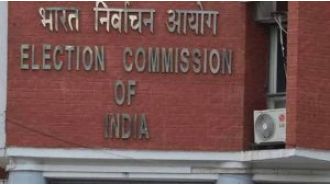Babies could be in danger due to health tests that favor white skin.
NHS assessments of newborns are outdated and not representative of all babies, according to experts.

Babies from black, Asian, and ethnic minority backgrounds may be at risk due to the NHS health assessments being based on white babies, according to a recent report. The newborn assessments used in the NHS today are decades old and primarily designed for white European babies.
One of the assessments, the Apgar test, is completed in the first 10 minutes after birth. It evaluates the baby's heart rate, reflexes, muscle tone, breathing, and skin colour. To score highly, their skin must be “pink all over”. However, the NHS Race and Health Observatory states that this test is “not fit for purpose” for babies of ethnic minorities.
Many NHS guidelines and policies use words like “pink”, “blue”, and “pale” to describe a baby’s skin colour, but do not make it clear how these colours may appear differently for babies of different backgrounds. This means that some minority ethnic babies are not being assessed effectively.
Healthcare workers usually look for clues such as cyanosis or jaundice. The report by experts at Sheffield Hallam University recommends that devices should be used to detect these conditions more accurately. In addition, better training for healthcare workers and more information for parents is needed.
Dr Habib Naqvi, chief executive of the NHS Race and Health Observatory, said: “We need to address the limitations in visual examinations of newborns, such as Apgar scores, where the assessment of skin colour can potentially disadvantage black, Asian and ethnic minority babies with darker skin.”
Hora Soltani, professor of maternal and infant health at Sheffield Hallam University, added: “We are very grateful to the Observatory for supporting this project and for the efforts of our collaborative team who for the first time, have systematically examined the relevance of the most commonly practised neonatal assessments which have been developed decades ago mainly based on white European babies.”
A Department of Health and Social Care spokesperson said: “While the NHS is already one of the safest places to give birth in the world, we are absolutely clear that maternity care must be of the same high standard for everyone. NHS England has published guidance for local maternity systems, supported by £6.8 million, focusing on actions to reduce disparities for women and babies from ethnic minorities and those living in the most deprived areas. We also set up the maternity disparities taskforce which brings together experts from across the health system, government departments and the voluntary sector to explore and consider evidence-based interventions to tackle maternal disparities.”
It is vital that healthcare workers and parents have the necessary training and information to ensure that all babies have access to the same quality of care. The report suggests that devices should be used instead of outdated skin colour checks to ensure accuracy and fairness. This is a crucial step in providing equal health care to all newborns.










